#Content Optimization
Explore tagged Tumblr posts
Text
Best SEO Practices 2025: The Ultimate Guide to Ranking Higher
Table of Contents Introduction Why SEO is Important in 2025 Top SEO Trends for 2025 Core SEO Strategies for Higher Rankings Content Optimization for 2025 Technical SEO Best Practices Link Building and Off-Page SEO Mobile and Voice Search Optimization AI and Automation in SEO User Experience (UX) and Core Web Vitals Experiments and Case Studies FAQs People Also Ask (PAA) Knowledge…
#AI in SEO#AI-driven SEO#Best SEO practices 2025#content optimization#Core Web Vitals#Digital Marketing Strategy#digital-marketing#E-E-A-T#Featured Snippets#Google ranking factors#keyword-research#link building#local SEO#Marketing#mobile SEO#off-page SEO#on-page SEO#organic traffic growth#organic-traffic#page experience#Search Engine Optimization#seo#SEO Case Study#SEO Trends 2025#SERP optimization.#structured data#technical SEO#user experience#voice search SEO#website ranking
3 notes
·
View notes
Text
What's Happening to SEO? 8 SEO Trends for 2025
🔄 Updated 2/26/2025
🕓 8-Min Read
🦘 Section Jumper
Optimize for E-E-A-T Signals
AI Overview and SEO
Forum Marketing and SERPs Updates
Is Traditional SEO Still Relevant
Zero-Click Searches
Map Pack and Local Heat Maps
Voice and Mobile Search Optimization
What's Better for AI: BOFU or TOFU Content?
Let’s call it what it is —SEO isn’t some clever marketing hack anymore; it’s now a battlefield where the rules change faster than your morning coffee order. And if you’ve been patting yourself on the back for nailing your SEO strategy, look, those same strategies might already be obsolete. Yeah, that’s how fast the game is flipping.
For years, we’ve been told that backlinks and keywords were the golden tickets. And now?
Gen Z is asking TikTok instead of Google, search engines are reading context like a nosy detective, and over half of all searches don’t even bother clicking on anything.
Welcome to SEO trends for 2025—a world where your next competitor might be an AI tool, a 3-second video, or even Google itself deciding to hoard its users.
youtube
1. Optimize for E-E-A-T Signals
There’s no nice way to say this: if your content isn’t radiating credibility, Google probably isn’t interested.
Now comes E-E-A-T—Experience, Expertise, Authoritativeness, and Trustworthiness. While it sounds like a mouthful, it’s the compass guiding Google’s ranking algorithm in 2025. If your content strategy ignores these signals, you're handing over your traffic to someone else—no questions asked.
What Is E-E-A-T, and Why Does It Matter?

E-E-A-T isn’t just some buzzword for digital marketing geeks to toss around at conferences. It’s Google’s way of separating the wheat from the chaff. Experience means real-world insights. Expertise ensures your content doesn’t sound like it’s written by an intern on their first day. Authoritativeness demands recognition from your industry.
And trust?
Well, it’s the silent decider—get it wrong, and everything else crumbles.
For content optimization in 2025, ignoring E-E-A-T signals means you’re throwing darts blindfolded. Google’s updates now measure not just what you say, but why anyone should care. And here’s the thing: thin content and anonymous authors are SEO death sentences.
How to Nail E-E-A-T (and Stay Ahead of the Latest SEO Trends)
Experience
Share specific, actionable knowledge. Generic advice doesn’t cut it anymore.
Example: A blog about SEO trends shouldn’t vaguely define "SEO"—it should delve into zero-click searches or multimodal search backed by real-world data.
Expertise
Feature qualified authors or contributors. Link their credentials to their content. Google actually checks authorship, so anonymous content only screams "spam."
Authoritativeness
Earn backlinks from reputable sites. Don’t fake authority—Google sees through it.
Trustworthiness
Secure your site (HTTPS), include proper sourcing, and avoid clickbait titles that don’t deliver.
The Hard Truth about E-E-A-T
E-E-A-T is the foundation for content optimization in a post-2024 world. The latest SEO trends show Google’s focus isn’t just on keywords but on the credibility of your entire digital presence.
It’s no longer enough to rank; you need to deserve to rank.
2. AI Overview and SEO

Artificial Intelligence is practically running the show. In 2025, AI isn’t a gimmick; it’s the brains behind search engines, content creation, and the unspoken secrets of what ranks. If you’re still crafting strategies without factoring in AI, here’s the harsh truth: you’re optimizing for a version of the internet that’s already irrelevant.
How AI Is Reshaping SEO
AI has transcended its “future of marketing” tagline. Today, it’s the present, and every search marketer worth their salt knows it.
Let’s break it down:
AI-Driven Search Engines
Google’s RankBrain and Multitask Unified Model (MUM) are redefining how search intent optimization works. They analyze context, intent, and semantics better than ever. Gone are the days when sprinkling keywords like fairy dust could boost rankings. AI demands relevance, intent, and, let’s be honest, better content.
Automated Content Creation
Tools like ChatGPT and Jasper are churning out content faster than most humans can proofread. The catch is, Google’s Helpful Content Update is watching—and penalizing—low-quality AI spam. Automated content might save time, but without a human layer of expertise, it’s a one-way ticket to obscurity.
Smart Search Predictions
AI isn’t just predicting what users type—it’s analyzing how they think. From location-based recommendations to real-time search trends, AI is shaping results before users finish typing their queries. This makes AI SEO tools like Clearscope and Surfer SEO essential for staying competitive.
Google AI Overview SERP: The New Front Door of Search

What Makes Google AI Overview SERPs Stand Out?
Generative AI Summaries In late 2023, Google started rolling out generative AI summaries at the top of certain searches. These provide quick, digestible answers pulled from the web, cutting through the noise of lengthy pages. It’s fast, convenient, and often the first (and only) thing users see. Pro Tip: Structure your content to directly answer questions concisely while retaining depth. Think FAQ sections, bullet points, and clear headers.
Visual Enhancements Google AI Overview SERPs now integrate rich visuals, including images, charts, and interactive elements powered by AI. These upgrades aren’t just eye-catching; they drive engagement. Pro Tip: Optimize images with alt text, compress them for speed, and ensure visual assets are relevant and high-quality.
Personalization on Steroids Google’s AI doesn’t just know what users want—it predicts it. From personalized recommendations to local search enhancements, SERPs are more targeted than ever. Pro Tip: Leverage local SEO strategies and schema markup to cater to these hyper-personalized results.
Adapting to Google AI SERPs
Aim for Snippet Domination: Featured snippets are now more important than ever, with AI summaries pulling directly from them. Answer questions directly and succinctly in your content.
Invest in Topic Clusters: AI thrives on context. Interlinking detailed, related content helps your site signal authority and relevance.
Optimize for Real Intent: With AI interpreting user queries more deeply, addressing surface-level keywords won’t cut it. Focus on intent-driven long-tail keywords and nuanced subtopics.
The Bottom Line
Google’s AI Overview SERP is the digital gateway to visibility in 2025. If your strategy isn’t aligned with these changes, you risk becoming invisible. Adapt your content to meet the demands of AI-driven features, and you’ll not just survive—you’ll thrive in this new SEO frontier.
What This Means for Your Strategy
AI-Assisted Content: Use AI for efficiency, but let humans handle creativity and trust-building.
Search Intent Optimization: Focus on answering deeper, adjacent questions. AI rewards nuanced, contextual relevance.
Invest in Tools: Tools like SEMrush and Ahrefs now integrate AI-powered insights, helping you stay ahead.
Look, artificial Intelligence in SEO isn’t an edge—it’s the standard. By 2025, marketers who don’t adapt will find their strategies in a digital graveyard. AI doesn’t replace your expertise; it amplifies it. Use it wisely—or get left behind.
3. Forum Marketing and SERP Updates
Platforms like Reddit, Quora, and niche communities are silently reshaping SEO and slipping into prime real estate on search engine results pages (SERPs). For marketers obsessed with the usual Google ranking factors, ignoring community-driven content could be the blind spot that costs you big.

Why Forums Are Influencing SERPs
Content Depth
Community-driven content is often nuanced, answering long-tail questions that traditional blogs barely skim. For instance, a Quora thread titled “Best local SEO strategies for small businesses in 2025” isn’t just generic advice—it’s specific, diverse, and sometimes brutally honest.
Searcher Intent Alignment
Forums directly address search intent optimization by catering to niche queries. Whether it’s “How to rank for hyper-local searches” or “Why my Google Business profile isn’t showing up,” forums deliver precise, user-generated insights.
Fresh Perspectives
Unlike stale, regurgitated SEO articles, forums thrive on updated discussions. A Reddit thread on “latest SEO trends” could become the top result simply because it offers real-time relevance.
What Marketers Need to Do
Engage, Don’t Spam
Build credibility by genuinely contributing to forums. Overly promotional comments are a fast track to being ignored—or worse, banned.
Monitor Trends
Tools like AnswerThePublic and BuzzSumo can identify trending community topics. Use these to create content that aligns with user discussions.
Optimize for SERP Features
Structure blog content to mimic forum-style Q&As. Google loves direct, conversational formats.
Ignoring the surge of forum content is no longer an option. So, don’t get left behind watching Quora outrank your site—adapt now.
4. Is Traditional SEO Still Relevant?
The debate is as old as Google itself: does traditional SEO still matter in a world where AI is taking over and search engines are rewriting the rules of engagement?

Traditional SEO Techniques That Still Work
Link Building (Reimagined)
Backlinks still matter, but Google has become savvier about quality over quantity. A link from an authoritative site in your niche outweighs ten random backlinks from irrelevant sources. Focus on building relationships with industry leaders, writing guest blogs, or getting cited in high-quality articles.
On-Page Optimization (Evolved)
Forget sprinkling keywords mindlessly. Google now prioritizes user experience SEO, meaning your headings, meta descriptions, and URLs need to align with search intent. Want to rank? Structure content logically, use descriptive titles, and, for goodness’ sake, stop overloading every tag with keywords.
Local SEO Strategies
Hyper-local searches like "coffee shops near me" are driving significant traffic. Traditional techniques like Google Business Profile optimization and consistent NAP (Name, Address, Phone) info still dominate here. What’s changed? You need to engage actively with reviews and ensure your profile reflects real-time updates.
Techniques That Need an Update
How to Adapt Traditional SEO in 2025

5. Zero-Click Searches
Now, let’s address the elephant on the search results page: zero-click searches. They’re not a trend anymore—they’re the new standard. With over 65% of Google searches ending without a click in 2020, search engines are clearly keeping users on their turf. They’re not just gatekeepers of information; they’re now the landlords, decorators, and sometimes the dinner hosts, offering all the answers upfront. And for businesses, this means rethinking how success in SEO is measured.

The Impact on SEO
Shift in Metrics
Forget obsessing over click-through rates. The latest SEO trends demand focusing on visibility within the SERP itself. If your business isn’t occupying rich result spaces, you’re effectively invisible.
Search Intent Optimization
Google isn’t just guessing user intent anymore—it’s anticipating it with precision. To stay relevant, businesses need to answer why users are searching, not just what they’re searching for.
Authority Consolidation
Zero-click features favor high-authority domains. If your brand isn’t seen as a credible source, you’re not making it into that snippet box.
How to Optimize for Zero-Click Searches
Target Featured Snippets
Structure your content with clear, concise answers at the top of your pages. Use lists, tables, and bullet points to cater to snippet formats.
Utilize Schema Markup
Help search engines understand your content by adding structured data. This boosts your chances of landing in rich results.
Focus on Hyper-Specific Queries
Zero-click searches thrive on niche, long-tail questions. Create content that directly addresses these to increase visibility.
What It Means for Businesses
In the world of zero-click searches, SEO success is about dominating the SERP real estate. Businesses that fail to adapt will find themselves in a no-click graveyard, while those who master rich results will cement their place as authority figures. Either way, the clicks aren’t coming back.
So, are you ready to play Google’s game—or be played?
6. Map Pack and Local Heat Maps
The truth is, if your business isn’t showing up in Google’s Map Pack, you might as well not exist for local customers. The Map Pack is literally the throne room of local SEO, and in 2025, it’s more competitive than ever. Pair that with Local Heat Maps—Google’s not-so-subtle way of telling businesses where they rank spatially—and you’ve got the ultimate battleground for visibility.

What Are the Map Pack and Local Heat Maps?
The Map Pack is that prime real estate at the top of local search results showing the top three businesses near a user. It’s concise, visual, and, let’s be honest, the first (and often only) thing users check. Local Heat Maps complement this by analyzing searcher behavior within a geographic radius, showing which businesses dominate specific zones.
Why It Matters
Visibility Drives Foot Traffic
According to recent studies, 78% of local mobile searches result in an offline purchase. If you’re not in the Map Pack, those sales are walking straight into your competitor’s doors.
User Proximity Bias
Google prioritizes businesses not just based on relevance but on proximity. If your listing isn’t optimized for precise local searches, you’re leaving money on the table.
Direct Influence on SERP Performance
Appearing in the Map Pack boosts Google ranking factors for local search queries, feeding visibility into both online and offline spaces.
How to Maximize Visibility in Local SEO
Optimize Your Google Business Profile (GBP):
Ensure your NAP (Name, Address, Phone) is accurate and consistent.
Add high-quality images, respond to reviews, and frequently update operating hours.
Focus on Reviews:
Encourage happy customers to leave reviews.
Respond to every review (yes, even the bad ones). Engagement signals trustworthiness.
Leverage Local Keywords:
Target queries like "best [your service] near me" or "[service] in [city]" to rank for location-based searches.
Tools like BrightLocal and Whitespark can help you track local performance.
Use SEO Automation Tools:
Tools like SEMrush and Moz Local can audit your listings, track rankings, and streamline updates. Automating repetitive tasks frees up time for deeper optimizations.

7. Voice and Mobile Search Optimization
Let’s get one thing straight: if your SEO strategy isn’t optimized for voice and mobile searches, you’re catering to an audience that doesn’t exist anymore. By 2025, voice-driven queries and mobile-first indexing are the baseline. If your website can’t keep up, neither will your rankings.
Why Voice and Mobile Search Dominate SEO

Voice Search is Redefining Queries
Voice search isn’t just “spoken Google.” It’s transforming how users ask questions. Searches are longer, more conversational, and often hyper-specific. For example, instead of typing “best SEO tools,” users now say, “What’s the best SEO automation tool for small businesses?” If your content doesn’t align with this natural language, you’re invisible.
Mobile is Non-Negotiable
Google’s mobile-first indexing means it now ranks websites based on their mobile versions. If your site is clunky on a smartphone, your desktop masterpiece won’t save you. And with nearly 60% of all searches happening on mobile, responsive design isn’t optional—it’s critical.
How to Optimize for Voice and Mobile
Create Conversational Content:
Use natural language that matches how people talk. Think FAQs and “how-to” guides tailored for voice queries.
Focus on long-tail keywords like “how to optimize for mobile-first indexing” rather than rigid phrases.
Mobile-First Design:
Prioritize responsive design that adapts seamlessly to smaller screens.
Optimize loading speed; anything over 3 seconds is SEO suicide.
Leverage Local SEO:
Most voice searches are local. Queries like “nearest coffee shop open now” thrive on accurate local listings.
Ensure your Google Business Profile is up-to-date and features consistent NAP info.
Use Structured Data:
Schema markup helps search engines interpret your content, increasing the likelihood of appearing in voice search results.
The future of SEO is voice-driven and mobile-first, and both require you to rethink how you structure your content and your site. Optimizing SEO for voice search and mobile-first indexing future-proofs your business. And if you’re not ready to adapt, don’t worry—your competitors already have.
8. What's Better for AI: BOFU or TOFU Content?
Let’s start with the obvious: not all content is the same, especially when AI gets involved. The age-old debate between Top of Funnel (TOFU) and Bottom of Funnel (BOFU) content just got a modern twist, thanks to the rise of AI-driven SEO. The real question isn’t which one is better—it’s how to use AI to optimize both.
Look, if you’re focusing on one and neglecting the other, you’re leaving money—and rankings—on the table.

TOFU Content: Casting the Wide Net
Top of Funnel content is designed to attract and inform. Think of blog posts, educational guides, or those “What is [your product]?” articles. In the AI era, TOFU content isn’t just about driving traffic; it’s about structured data examples and search intent optimization. AI tools like ChatGPT help create scalable, topic-driven content tailored for discovery.
Why TOFU Matters:
It builds brand awareness and visibility.
Optimized TOFU content aligns with broad search intent, capturing users who aren’t ready to buy but are hungry for knowledge.
TOFU shines in industries with complex products that need explanation before consideration.
BOFU Content: Sealing the Deal
On the other hand, Bottom of Funnel content focuses on converting leads into customers. This includes case studies, product comparisons, and detailed how-to content. AI isn’t just speeding up content creation here; it’s enabling hyper-personalized, decision-driven assets.
Why BOFU Matters:
It answers purchase-ready queries like “best SEO automation tools for small businesses.”
BOFU works wonders for products or services with shorter sales cycles or high competition.
The content can include dynamic features like interactive product demos or AI-generated testimonials to push users over the edge.
The Verdict: Which One Wins?
Neither. TOFU and BOFU content work best as part of a balanced strategy. AI thrives when it’s used to create and optimize both stages of the buyer’s journey.
For example:
Use AI to analyze trends and structure TOFU content for long-tail keywords.
Deploy AI for data-driven BOFU personalization, ensuring the content resonates with users’ specific needs.
AI isn’t here to settle the TOFU vs. BOFU debate—it’s here to make sure you never have to choose. A well-rounded strategy, powered by AI, ensures you attract the right audience and convert them when the time is right. If you’re doing one without the other, you’re playing half the game.
Contact Us
Contact us for more info or to chat about your business strategy in 2025
Staying Ahead of SEO Trends in 2025
SEO isn’t static, and 2025 won’t give you time to rest on outdated strategies. From zero-click searches hijacking clicks to AI redefining the content game, keeping up isn’t just a choice—it’s survival. Businesses that ignore these SEO trends risk fading into irrelevance faster than you can say “algorithm update.”
The solution? Adapt now!
Use AI SEO tools to fine-tune your strategy, optimize for human intent (not just search engines), and rethink how you create TOFU and BOFU content. It’s not about doing everything—it’s about doing the right things smarter and faster.
Start applying these insights today. Your competitors already are.
2 notes
·
View notes
Text
#Video Content Marketing#Video SEO#Video Engagement Strategies#Interactive Content#Social Media Marketing#Content Optimization#Digital Marketing#Website Traffic#Video Marketing Strategy#Video Content Optimization#SEO for Video#Brand Engagement
2 notes
·
View notes
Text
Keyword Research for SEO: What It Is & How to Do It

What is Keyword Research for SEO?
Keyword research for SEO is the foundation of any successful digital marketing services in Delhi strategy. It involves identifying the terms and phrases your target audience uses when searching online. By focusing on the right keywords, businesses can increase their visibility on search engines, attract qualified leads, and improve overall website performance.
Why is Keyword Research Important?
Increased Visibility: Proper keyword research ensures your website ranks higher in search engine results.
Better Targeting: By understanding user behavior, you can create content that aligns with what your audience is searching for.
Optimized Content Strategy: Keywords help shape your blog topics, landing pages, and ad copy.
Competitive Advantage: Analyzing your competitors' keyword strategies can refine your own approach.
For businesses like iWrite India offering digital marketing services in Delhi, this can be a game-changer in reaching potential clients locally and globally.
How to Conduct Keyword Research for SEO
Step 1: Understand Your Goals
Start by defining your objectives. Are you aiming for more traffic, leads, or conversions? Your keyword research strategy should align with these goals.
Step 2: Brainstorm Keyword Ideas
Think of potential search terms your audience might use. For example, someone looking for digital marketing services in Delhi might also search for "SEO agency in Delhi" or "social media management."
Step 3: Leverage the Best Keyword Research Tools
To refine your ideas, use tools that provide detailed insights:
Google Keyword Planner: Understand search volumes and competition.
Ahrefs: Analyze competitor keywords and backlinks.
SEMrush: Get a comprehensive view of trends and traffic potential.
Ubersuggest: Generate additional keyword suggestions.
AnswerThePublic: Discover questions people commonly search for.
Pro Tip: Long-tail keywords such as “best keyword research tool for beginners” have lower competition but higher conversion potential.
Step 4: Evaluate Keyword Metrics
When analyzing keywords, focus on:
Search Volume: How many people are searching for this term?
Keyword Difficulty (KD): How competitive is it to rank for this keyword?
Cost Per Click (CPC): Essential if you’re running PPC campaigns.
Search Intent: Is the user looking for information, a product, or a service?
Step 5: Map Keywords to Content
Once you’ve selected your keywords, assign them to specific pages or blog posts. For instance, use “keyword research for SEO” as the main focus for this blog while naturally integrating secondary keywords like “best keyword research tool” into appropriate sections.
Step 6: Prioritize Local SEO
If you're targeting a specific location, such as digital marketing services in Delhi, include location-based keywords in your content, meta descriptions, and headings.
Step 7: Continuously Update Your Keyword Strategy
SEO is not a one-time effort. Regularly revisit your keyword list and adapt to changing trends or search behaviors.
Top Tools for Effective Keyword Research
Google Keyword Planner: Great for beginners, offering search volumes and related keywords.
SEMrush: A powerful tool for tracking competitors and uncovering new opportunities.
Ahrefs: Provides in-depth insights into backlinks, keywords, and site audits.
Moz Keyword Explorer: User-friendly, with detailed keyword suggestions.
These tools ensure that your keyword strategy remains accurate and effective, whether you're optimizing content or running campaigns for digital marketing services in Delhi.
Keyword Research Made Easy
Keyword research for SEO is essential for enhancing visibility, driving organic traffic, and ensuring your content aligns with user intent. Mastering this process can significantly improve your online presence.
Book Your Free Consultance
Looking for expert assistance with keyword research and SEO? At iWrite India, we provide comprehensive digital marketing services in Delhi tailored to your business needs. Whether it’s optimizing your website or creating content that ranks, we’ve got you covered. Visit iWrite India to learn more or get started today!
FAQs
What is the role of search intent in keyword research?Search intent determines what a user is looking for—information, navigation, or purchase. Aligning your content with this intent improves relevance and engagement.
How can I find the best keyword research tool for my needs?Evaluate tools based on your goals. Beginners might prefer Google Keyword Planner, while advanced users benefit from SEMrush or Ahrefs for in-depth analysis.
Why should I use long-tail keywords in my SEO strategy?Long-tail keywords have lower competition and higher specificity. They are ideal for targeting niche audiences and increasing conversion rates.
How often should I perform keyword research?It’s recommended to revisit your keyword strategy every three to six months or when launching a new campaign to stay updated with trends.
What’s the difference between short-tail and long-tail keywords?Short-tail keywords are broad and competitive (e.g., "SEO"), while long-tail keywords are more specific and easier to rank for (e.g., "best keyword research tool for SEO beginners").
#iwrite india#Keyword Research#SEO#search engine optimization#keyword research for seo#best keyword research tool#digital marketing services in delhi#seo strategy#online marketing#content optimization
2 notes
·
View notes
Text

With the help of the top Noida website design company and knowledgeable digital marketing services, reach the full potential of your business. We create visually appealing websites that connect with your target audience and implement targeted marketing strategies that result in quantifiable growth. Contact us now, and let's work together to create something truly amazing.
megaspark.in
#digital marketing#website optimization#search engine marketing#e - commerce#content optimization#website development
4 notes
·
View notes
Text
The Sigzen Technologies : Unleashing the Power of Cutting-Edge SEO Services
Sigzen Technologies stands at the forefront of digital transformation, offering comprehensive SEO services tailored to meet the dynamic needs of businesses. With a commitment to excellence, Sigzen leverages its expertise to propel clients to the pinnacle of online visibility and success. In an era dominated by digital interactions, SEO plays a pivotal role in shaping a brand’s online presence.…
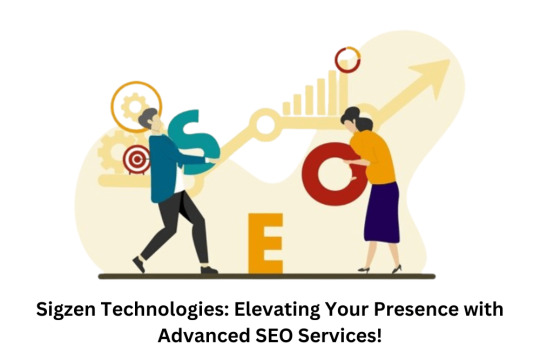
View On WordPress
#Content Optimization#Cutting-Edge SEO Services#Digital Dominance Secrets#Digital Marketing Strategies#Online Presence Boost#Online Visibility Tactics#SEO Mastery Revealed#SEO Revolution Tactics#SEO Success Tips#SEO Tactics Unleashed#Unlocking SEO Power
2 notes
·
View notes
Text
How to optimize the website?
Website optimization involves several steps to improve its performance, user experience, and search engine ranking. Here’s a general guide:1. **Speed Optimization**: Ensure your website loads quickly by optimizing images, minimizing code, and leveraging caching techniques.2. **Mobile Optimization**: Make sure your website is responsive and performs well on mobile devices.3. **SEO (Search Engine…
View On WordPress
#Accessibility#Analytics#Caching#Content Optimization#Conversion Rate Optimization (CRO)#Meta Tags#OptimizationMobile#OptimizationUser Experience (UX)#Performance Improvement#Responsive Design#Search Engine Ranking#Security#Website OptimizationSEOSpeed
1 note
·
View note
Text
SEO Services by Pat’s Marketing – Boost Rankings & Drive Real Results

Pat’s Marketing is a Toronto-based digital marketing agency offering expert SEO services to improve your website’s visibility, traffic, and performance. This infographic highlights our core offerings — from technical SEO audits and content optimisation to high-quality link building and keyword research. Visit https://www.patsmarketing.ca/ for more details.
#seo services#digital marketing#toronto seo#search engine optimization#technical seo#content optimization#link building#keyword research#online visibility#website traffic#seo agency#local seo#on-page seo#off-page seo#website ranking#seo audit#seo experts#seo company#organic traffic#marketing agency#seo#seo tips
1 note
·
View note
Text
7 Free AI Tools Every Content Creator Needs
7 Free AI Tools Every Content Creator Needs The following free AI tools offer powerful functionalities that can streamline your content creation process, enhance quality, and boost your SEO efforts. 1. Google Bard / ChatGPT (and other Large Language Models) for Content Generation & Brainstorming Large Language Models (LLMs) like Google Bard and ChatGPT have become indispensable for content…
#AI tools#algorithmic ranking#AnswerThePublic#backlinking#Canva#ChatGPT#content creation#content creator#content optimization#content quality#content strategy#digital marketing#free AI#Google AdSense#Google Bard#Google Keyword Planner#Google Search Console#Grammarly#graphic design#Hemingway Editor#keyword research#online content#organic traffic#passive voice#productivity#SEO#user experience#website monetization#writing assistant
0 notes
Text

Elevate Your Brand with Expert SEO Solutions by PickMyURL Boost your business visibility with high-quality SEO and engaging designs tailored for top search engine performance.
#SEO #SearchEngineOptimisation #PickMyURL #DigitalMarketing #SEOAgency #OnlineVisibility #WebsiteTraffic #MarketingCompany #GrowYourBusiness #SEOIndia
#SEO#Search Engine Optimisation#PickMyURL#SEO Services#Digital Marketing#SEO Strategy#Google Ranking#Website Optimization#Online Marketing#SEO Agency India#SEO Experts#Keyword Research#Content Optimization#SERP Boost#Organic Traffic#On-Page SEO#Technical SEO#Local SEO Services#Digital Marketing India#Search Engine Marketing
1 note
·
View note
Text
12 Game-Changing Chrome Extensions for SEO Professionals

In the everchanging and competitive online space we work in today, SEO services have never been more important. To be effective and to grow in professional SEO services, they will need great tools that improve their productivity, speed up their workflow and provide accurate data to help them make more informed decisions. The most convenient way to leverage these tools are Chrome extensions. In this blog, we will discuss 12 essential Chrome extensions that are truly changing the way professionals offer SEO services.
Why Chrome Extensions Matter for SEO Professionals
Chrome extensions provide fast and real-time data directly baked into your browser. Whether its checking on-page SEO, checking backlinks, or looking at keyword data, these extensions save you invaluable time and effort. Integrating into your browser means they quickly become essential in your SEO toolkit.
1. MozBar
MozBar by Moz is consistently referred to as a must-have for SEO practitioners. This chrome extension will let you access metrics like domain authority, page authority, and spam score while browsing any webpage. It's designed primarily for competitor analysis and link opportunities usage.
Key Features:
On-page element analysis
Link metrics and domain comparisons
Custom searches based on location
2. Keywords Everywhere
This keyword research tool will show search volume, CPC, and competition data from Google, Amazon, and YouTube, to name a few.
Key Features:
Related keyword suggestions
Trend data visualizations
Import/export functionality
3. SEOquake
This powerful SEO audit tool compiled by SEMrush, can provide a full SEO audit at your fingertips.
Key Features:
Detailed SERP analysis
Keyword density reports
Internal/external link inspection
4. Ubersuggest
The popular Neil Patel, Ubersuggest's chrome extension is a quick way to gather keyword data and a broad traffic overview.
Key Features:
Monthly search volume
CPC and competition data
Domain-level traffic analysis
5. Ahrefs SEO Toolbar
Ahrefs house some of the most trusted data in the SEO world, and its chrome extension is no different.
Key Features:
Page-level and domain-level metrics
Broken link checker
Redirect tracer
6. SERPTrends
SERPTrends is a tool that will help you keep track of the movement for any search term you like, to demonstrate movement over time.
Key Features:
Monitors SERP fluctuations
Helps identify emerging competitors
Tracks ranking changes daily
7. SimilarWeb
For those offering SEO services, understanding traffic sources is crucial. Similar Web's extension provides detailed traffic and engagement data.
Key Features:
Traffic ranking and channel distribution
Audience insights
Competitor performance metrics
8. Check My Links
This extension is a must-have for on-page SEO audits. It scans web pages and highlights all the broken links.
Key Features:
Quick broken link identification
Color-coded link status
Export link report
9. Lighthouse
Developed by Google, Lighthouse audits web performance, accessibility, and SEO all in one tool.
Key Features:
Performance score breakdown
SEO and best practices audit
PWA support
10. Wappalyzer
Understanding a site’s tech stack can inform your SEO services strategy. Wappalyzer reveals which technologies a website uses.
Key Features:
Detects CMS, analytics tools, and more
Helps identify competitor tools
Assists in technical SEO decisions
11. Hunter
Hunter is essential for outreach and link-building efforts. It finds and verifies professional email addresses associated with websites.
Key Features:
Email address discovery
Confidence scoring
Integration with CRM platforms
12. Grammarly
While not a traditional SEO tool, Grammarly ensures your content is grammatically correct and readable—both important SEO factors.
Key Features:
Real-time grammar and style suggestions
Readability scores
Tone adjustments
How These Tools Improve SEO Services
When using these Chrome extensions, you are significantly improving the efficiency, accuracy, and effectiveness of your SEO services. You conduct audits a lot quicker, dive deeper into keyword research, analyze competitors better, and create better on-page optimization.
Using these tools in conjunction with your digital marketing services strategy will allow your clients to achieve better results, and a better ROI on their marketing budget.
Tips for Getting the Most Out of Chrome Extensions
1. Don’t Overload Your Browser
Install only the extensions you use regularly. Too many can slow down your browser and cause conflicts.
2. Keep Extensions Updated
Regular updates fix bugs and introduce new features, keeping your toolkit effective and secure.
3. Use Extensions in Tandem
Combine keyword research tools with audit tools for a comprehensive SEO strategy.
Final Thoughts
Using these 12 Chrome extensions in your day-to-day workflow can provide a new level of effect, and surely, you will benefit from using them. Each Chrome extension has its own benefits, and makes your work faster, smarter, and more strategic. It doesn't matter if you are an agency with digital marketing services or a sole freelance SEO consultant, and these tools will change how you work. With a good mix of experience, data, and the tools in this list, you are prepared for whatever the SEO world throws at you.
#SEO services#Chrome extensions#SEO tools#digital marketing services#on-page SEO#keyword research#backlink analysis#technical SEO#SEO audit#content optimization#SEO plugins#website optimization#browser extensions for SEO#SERP analysis#marketing tools
1 note
·
View note
Text
Blog Post Title One
It all begins with an idea. Maybe you want to launch a business. Maybe you want to turn a hobby into something more. Or maybe you have a creative project to share with the world. Whatever it is, the way you tell your story online can make all the difference.
Don’t worry about sounding professional. Sound like you. There are over 1.5 billion websites out there, but your story is what’s going to separate this one from the rest. If you read the words back and don’t hear your own voice in your head, that’s a good sign you still have more work to do.
Be clear, be confident and don’t overthink it. The beauty of your story is that it’s going to continue to evolve and your site can evolve with it. Your goal should be to make it feel right for right now. Later will take care of itself. It always does.
#SEO Content Strategy#Keyword Research#Topic Clusters#Content Calendar#On‑Page SEO#Content Optimization#Search Intent#Content Planning
0 notes
Text
How to Generate Content From Ai ChatGpt For Blogging Site.
To Generate some main topics on specific targeted audience I’m Muhammad Sufiyan an SEO Specialist and I want to describe [general topic] to [target audience]. What are some specific topics I should write about? I’m a [role] at a [industry] company. Our target audience is [description]. Please create a list of pain points my target audience has. (Get more specific by adding “with [trouble area]”…
#AI content generation#AI-generated content for SEO#blog content ideas#blog post ideas for specific audiences#blog SEO#blog writing prompts#blogging prompts#content creation with ChatGPT#content ideas#content marketing#content optimization#content writing agency in Dubai#detailed blog outline with keywords#digital-marketing#featured snippet optimization#how to generate blog content using ChatGPT#how to write SEO-friendly blog post with ChatGPT#Jamaican restaurant in Austin#keyword research#keyword strategy for blogging#keyword-research#long-form content#marketing#meta descriptions#organic-traffic#pain points of target audience in [industry]#pet sitter in Los Angeles#roof repair in New York#search engine visibility#semantic search
0 notes
Text
SEO Content Optimization Services to Improve Google Rankings

Every word on a website holds power and for businesses aiming to dominate search results, precision matters more than ever. At Versa Forge, we step in where average SEO stops, transforming scattered content into a focused signal that search engines recognize and reward.
For us, content optimization isn’t about stuffing keywords - it’s a data-driven process that reshapes pages to reflect how people search and how algorithms measure trust and relevance. From refining site architecture to tuning semantic signals, every move we make is designed to elevate our clients’ online authority.
Businesses partnering with us see more than just higher rankings they gain content that truly connects, converts and drives meaningful growth.
→ Learn how your website can perform at its peak: Versa Forge Content Optimization
#seo services#content optimization#digital marketing#content marketing#on page seo#search engine optimization#website optimization#google ranking#marketing strategy
0 notes
Text
Boring Website? Expert SEO Consulting Can Turn It into a Lead Magnet
In today’s digital world, your website is often the first impression potential customers have of your brand. But what if your website looks professional yet still fails to generate leads? The issue might not be your product or service. It might be that your site is simply invisible or unengaging to your audience. That’s where expert SEO consulting comes in.
Even the most attractive websites can be considered "boring" if they aren’t driving traffic, engaging visitors, or converting users into leads. Fortunately, SEO consulting firms specialize in turning underperforming websites into high-converting, lead-generating machines using a combination of search engine optimization, technical improvements, and content strategies.
Here’s how they do it.
1. They Start with Visibility: Ranking Where It Matters
A beautiful website is meaningless if no one can find it. Many business owners invest in design but overlook the critical importance of search engine visibility. Expert SEO consulting begins by auditing your website’s ability to rank in search engines. This includes:
Keyword analysis to target high-conversion phrases
Competitor benchmarking to identify market gaps
Technical audits to ensure crawlability and indexing
Once these issues are addressed, your website starts attracting qualified organic traffic — the first step to turning it into a lead magnet.
2. They Improve Content That Connects with Intent
Content is often the reason users stay on a website or leave within seconds. If your messaging is vague, uninspiring, or not aligned with what people are searching for, you will lose potential leads. SEO consulting firms help optimize your content by:
Mapping content to buyer intent
Inserting relevant, high-volume keywords
Structuring content for readability and engagement
Creating strong, compelling calls to action
Expert SEO consulting ensures that your blog posts, landing pages, and product descriptions are not only optimized for search engines but also tailored to convert visitors.
3. They Focus on UX and Site Architecture
Site structure plays a critical role in how both users and search engines interact with your website. If users can’t find what they’re looking for quickly, they leave. SEO consultants restructure your site with usability in mind by:
Simplifying navigation and menus
Creating logical content silos
Optimizing internal linking for user flow and SEO
Speeding up page load times and improving mobile performance
These adjustments enhance user experience and reduce bounce rates, creating an environment where leads are more likely to convert.
4. They Turn Data into Strategy
Guesswork doesn’t work in digital marketing. One of the biggest advantages of working with SEO consulting firms is their use of analytics. They monitor:
Which pages attract the most traffic
Where users drop off
What keywords drive qualified visitors
How CTAs perform
Expert SEO consulting turns this data into actionable insights. Whether that means adjusting content formats, updating old blog posts, or testing different landing page layouts, every decision is guided by measurable performance.
5. They Create High-Converting Landing Pages
Most websites lack targeted landing pages, which are critical for lead generation. SEO consulting firms specialize in building or optimizing landing pages that align with specific keywords and search intent.
Each page is designed with one purpose: convert visitors into leads. From strong headlines and trust-building elements to clean design and persuasive copy, these pages become the engine of your lead-generation strategy.
6. They Optimize for Local and Mobile Traffic
If your audience is local or mobile-first, but your website isn’t optimized accordingly, you’re losing opportunities. SEO consultants make sure your site ranks well in local searches and performs perfectly on all devices. This includes:
Google Business Profile optimization
Location-based keyword targeting
Responsive mobile design and page speed improvements
Capturing mobile and local leads is often one of the fastest ways to increase lead flow from organic search.
7. They Leverage Lead Magnets and Content Upgrades
Turning visitors into leads sometimes requires offering value upfront. Expert SEO consulting can also guide you in integrating lead magnets like:
Downloadable guides
Free trials
Webinars
Email courses
By aligning these offers with relevant content, SEO consulting firms ensure that visitors have a reason to provide their contact information — and become leads.
Conclusion
A visually appealing website that doesn’t generate leads is not a successful website. With the right help, it doesn’t have to stay that way. Expert SEO consulting is designed to uncover the hidden potential in your digital presence, turning your website into a consistent and reliable source of leads.
By improving visibility, enhancing content, optimizing user experience, and aligning every element with strategic intent, SEO consulting firms help businesses unlock growth and generate results.
If you’re ready to stop relying on luck and start building a lead-generating machine, expert SEO help may be the smartest investment you make this year.
#expert seo consulting#seo consulting firms#website lead generation#seo strategy#content optimization#seo conversion rate#landing page optimization#search engine visibility#technical seo#mobile seo#local seo#user experience#digital marketing
0 notes
Text
Want More Traffic in 2025? These 18 SEO Techniques Actually Work
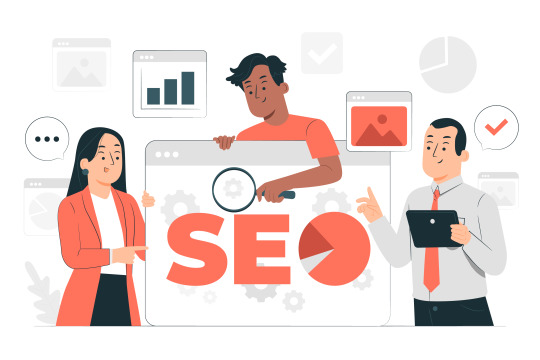
Boost Rankings and Organic Reach: Must-Use SEO Techniques for 2025
Want to boost your website’s organic traffic and climb higher in Google search results? In today’s fast-changing SEO landscape, it's more important than ever to stay ahead with strategies that are tested, refined, and aligned with the latest algorithm updates. Successful SEO in 2025 means continuously adapting and experimenting to maintain strong visibility in search engine results.
In this post, we’ll dive into the most powerful and up-to-date SEO techniques of 2025—sharing practical, proven tips to increase your online reach, drive consistent traffic, and grow your brand presence organically.
Take a look at the diagram below to see the key focus areas every SEO plan should cover this year.
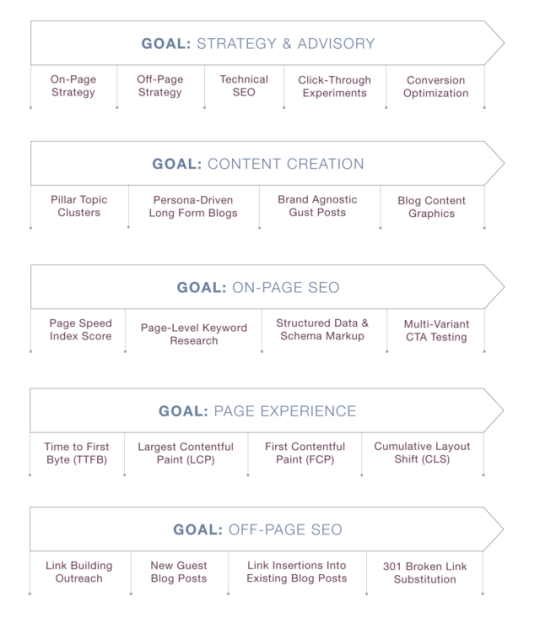
Short Summary
● Master intent-driven keyword research to align your content with what users are truly searching for—leading to stronger SEO performance and higher visibility.
● Leverage on-page SEO, user experience (UX), and search intent to not only boost rankings but also increase engagement and drive more website conversions.
● Continuously monitor results to fine-tune your SEO strategy, track performance, and maintain strong positions in the search results over time.
Read More: How to write a good blog using all SEO techniques
Finding the Right Keywords for Maximum Visibility

An effective SEO strategy starts with understanding what people are searching for and why.
To succeed, you need to find the right keywords—phrases your audience is actually using on search engines. This means doing proper keyword research to discover high-performing terms and topics. Once you know what to target, you can create content that matches user intent and ranks well in Google and other search engines.
It’s also important to know how search engines judge your content. They look for signs of expertise, authority, and trust (E-E-A-T). That’s why choosing the right keywords, using trusted SEO tools, and understanding how search engines read your content is essential for long-term success.
Why Keywords Still Matter in SEO
Keywords play a key role in improving your website’s SEO. They help search engines understand what your content is about and match it with what users are searching for.
Long-tail keywords—which are longer, more specific phrases—are especially useful. These keywords often face less competition and bring more targeted traffic to your website.
To get the best results, it's important to place these keywords smartly. Use them in URLs, image alt text, and throughout your content—but avoid overusing them, as keyword stuffing can hurt your rankings.
Backlinks and internal linking are also important parts of SEO. When adding internal links, always use clear and relevant anchor text. This not only helps users navigate your site easily but also helps search engines understand which pages are most important.
How to Align Your Content with User Search Intent
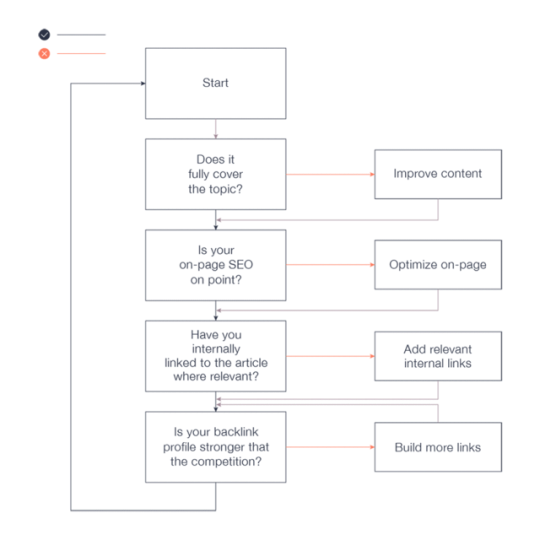
To create content that ranks well and truly meets user needs, it’s important to understand how Google works—especially how it uses algorithms, crawling, indexing, and user intent. Knowing what users are trying to achieve when they search on Google helps you craft content that matches their expectations and goals.
Pay close attention to how people phrase their searches—the words they use, the order, and the context. This helps search engines understand what the user really wants, so your content can align with that intent more effectively.
Tools like Google Search Console are very helpful for this. They show you the actual search terms people use to find your site. Also, features like "People Also Ask" and "Related Searches" in the search results can give valuable clues about user intent. Studying how questions are grouped or how users move from one query to another can help you build better, more relevant content.
Keyword Research Tools
To discover high-performing keywords and understand your competition, you can use tools like SEMrush, Ahrefs, and Google Keyword Planner. These tools help you find keywords that people are searching for and show how competitive those keywords are.
For example, SEMrush not only helps improve your site’s rankings but also shows which keywords are bringing in traffic for your competitors.
You can also do a keyword gap analysis using these tools. This means finding keywords that your competitors rank for—but you don’t. It’s a great way to uncover new keyword opportunities and grow your organic traffic more effectively.
Improving Content Performance with On-Page SEO
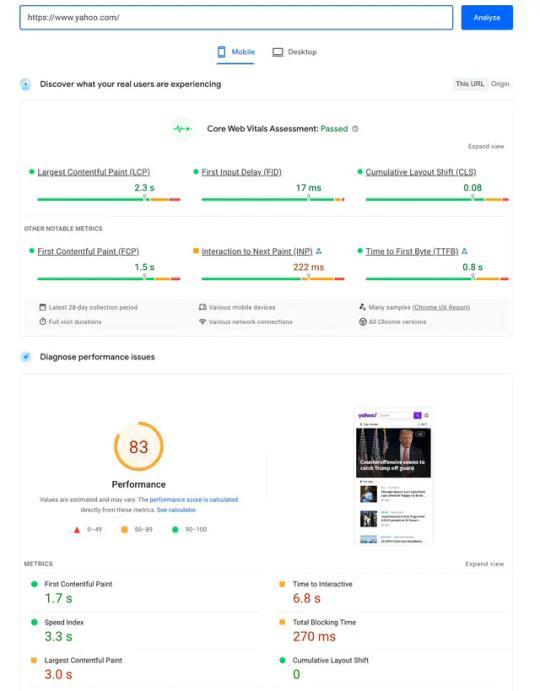
Optimizing on-page elements is a key part of improving your website’s visibility in search results and enhancing the user experience. By focusing on areas like page titles, meta descriptions, header tags, images, and featured snippets, you help both users and search engines easily understand your content. These elements also contribute to your site’s Core Web Vitals, which are important for overall performance.
A well-optimized landing page doesn’t just rank higher—it also attracts more visitors and keeps them engaged. This leads to better traffic, lower bounce rates, and higher satisfaction for your users.
Boosting CTR with Optimized Titles & Meta Descriptions
Title tags are essential HTML elements that define the name of a webpage. They appear in the browser tab and are shown as the clickable headline in Google’s search results (SERPs).
A strong title tag should include your primary keyword or keyword phrase, accurately describe the page content, and be unique and engaging. A well-crafted title not only helps improve your search engine rankings but also increases your click-through rate (CTR) by attracting more user attention.
Meta descriptions are short summaries that appear below the title tag in search results. They briefly describe what the page is about and help users decide whether to click.
While meta descriptions aren’t a direct ranking factor, they play a big role in encouraging clicks. A clear, compelling description can lead to better traffic and improved performance in SERPs.
To optimize your meta descriptions:
● Keep them under 150 characters
● Include your main keyword
● Focus on clarity and value to the reader
Header Tags
Header tags are HTML elements like <h1> to <h6> that help organize the content of a webpage. They make it easier for both search engines and users to understand the structure of your content.
Use <h1> for your main page title (only once), and then use <h2>, <h3>, etc., for subheadings in a proper order. This helps give your content a clear flow and hierarchy.
Adding keywords in header tags can improve your on-page SEO. But make sure the headers are short, relevant, and not stuffed with keywords.
Proper use of header tags helps Google understand what each section of your page is about. This can improve your rankings, make your content more visible in search results, and increase clicks to your website.
Optimizing Images for Better SEO and Speed
Optimizing images is an important part of improving your website’s speed, user experience, and search engine rankings.
To do this, you should compress images so they load faster, use descriptive file names, and include targeted keywords in the image alt text. This helps your images appear in Google Images and also improves your chances of ranking higher in search results.
Alt text is especially important. It tells search engines what the image is about and can increase your visibility in image search. When used correctly, image optimization can also boost your overall SEO performance and deliver a better return on your search marketing efforts.
Writing AI Content That Connects Like a Human
As AI tools like ChatGPT are widely used for content creation, keeping the content sounding natural and human has become a real challenge. That’s where AI humanizer tools are useful. These tools help rewrite or polish AI-generated text so it sounds more natural and less robotic.
When combined with tools for checking grammar and originality, AI humanizers can greatly improve the readability and trust of your content. This not only helps your SEO content connect better with readers but also keeps it relevant for search engines.
Improving Website Experience for Users
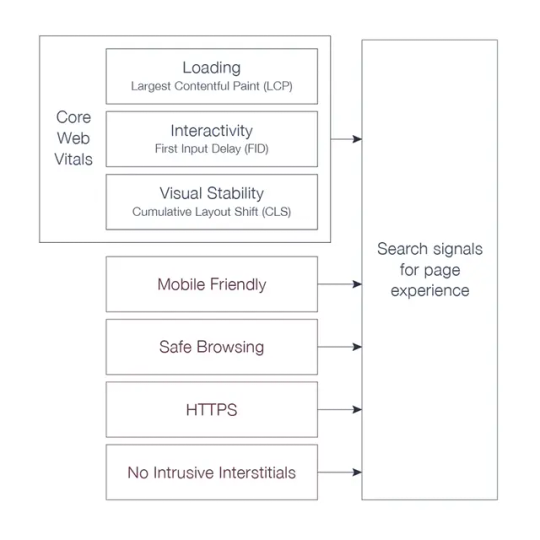
A great user experience (UX) is essential for improving your rankings on Google and other search engines. It also plays a big role in keeping visitors happy. When your website is fast, mobile-friendly, and easy to navigate, users are more likely to stay longer and interact with your content.
Good UX doesn't just help with SEO—it can also lead to higher engagement, more page views, and better conversion rates. Simply put, when your website works well for users, it also works better for search engines.
Site Speed
Improving your site’s speed—especially page loading time—is crucial for both better user experience and higher rankings in search results. You can boost page speed by compressing images, using browser caching, and reducing the number of HTTP requests your site makes.
A faster website not only helps you rank higher on Google but also keeps visitors engaged. When pages load quickly, users are more likely to stay, explore, and convert—leading to better overall performance for your site.
Mobile Usability and Smooth Site Navigation
With more people browsing on mobile devices, it’s essential that your website is mobile-friendly. Use responsive design, improve loading speed, and focus on user experience across all screen sizes to meet the needs of mobile users.
A mobile-optimized site not only improves search engine rankings but also attracts more organic traffic and leads to better user satisfaction and conversions.
In addition, clear and simple navigation helps users find what they need quickly. A well-structured site with easy-to-use menus improves both user experience and SEO performance.
When your website is easy to browse and well-organized, visitors stay longer, explore more pages, and are more likely to take action—boosting engagement and overall satisfaction.
Smart Strategies for Building Quality Backlinks
High-quality backlinks play a key role in improving your website’s domain authority and search engine rankings. You can earn strong backlinks through strategies like guest blogging, the skyscraper technique, and fixing or replacing broken links on other sites.
A well-written blog post combined with a strong backlink profile can help your content rank higher on Google, drive more organic traffic, and improve the overall quality and visibility of your website.
Guest Blog Post
Guest blogging is a smart way to earn quality backlinks and increase your online visibility. By writing useful, high-quality content for trusted websites in your industry, you can build your authority and attract new visitors to your own site.
To succeed with guest blogging, focus on three key steps:
Find relevant and reputable websites that accept guest posts.
Create valuable, well-written content that matches their audience.
Optimize your post for SEO and promote it through your social media channels to reach a wider audience.
Broken Link Building
Broken link building is a smart SEO technique where you find broken (non-working) links on other websites and suggest your own content as a replacement. This helps the website fix their broken links while you earn a valuable backlink.
The process involves searching for broken external or internal links on websites in your niche and then contacting the site owners with a relevant and helpful link from your own content.
This strategy is a powerful way to increase your website’s visibility, gain quality backlinks, and improve your domain authority.
If you're unsure which link-building method is best for your site, consider getting help from SEO specialists—whether that’s a freelancer, agency, or backlink service. They can guide you in choosing the most effective strategies for stronger results.
How to Power Your SEO with Smart Content Marketing
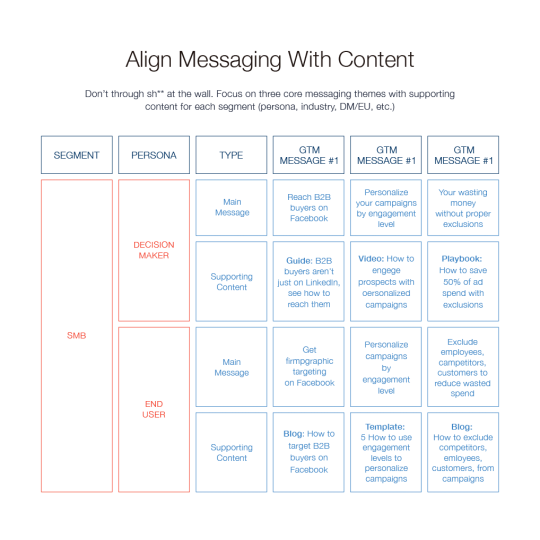
Content marketing involves creating and sharing useful, relevant content to attract and connect with your target audience. When you publish high-quality blog posts, in-depth cornerstone content, and shareable pieces, you can drive more traffic to your website and improve your search engine rankings.
A strong content marketing strategy can help boost brand awareness, increase user engagement, and lead to more conversions.
Blogging
Consistently publishing useful and engaging content is key to targeting the right keywords and offering real value to your audience. For example, if you're writing an educational blog around the keyword "write my dissertation," high-quality content will play a major role in helping you reach and engage your target readers.
To succeed, make sure your blog post is optimized for SEO and actively shared on social media. This helps attract more organic traffic and boosts your visibility in search engine results (SERPs).
Effective blogging involves three main steps: doing research, creating helpful content, and optimizing it for search engines. When done well, it can build trust, grow your audience, and support your business or academic goals.
Essential Content That Builds Authority
Cornerstone content refers to detailed, valuable content that covers important topics deeply and thoroughly. It forms the foundation of your website’s overall content strategy.
When you create well-researched, unique, and informative cornerstone content, it helps establish your website as a trusted source in your niche. It also supports your site’s performance by improving Core Web Vitals and overall user experience.
Over time, strong cornerstone content can lead to higher search engine rankings and attract more consistent traffic to your most important pages.
Shareable Content
Creating shareable content helps boost your online visibility by encouraging social media shares and attracting valuable backlinks.
To succeed, your content must connect with your target audience. It should be informative, relevant, and emotionally engaging. Formats like infographics, videos, and well-written articles are especially effective in capturing attention and sparking shares.
When your content resonates with readers, they’re more likely to share it—bringing in more organic traffic and helping other pages on your site gain visibility too.
How Social Media Can Grow Your Website Reach
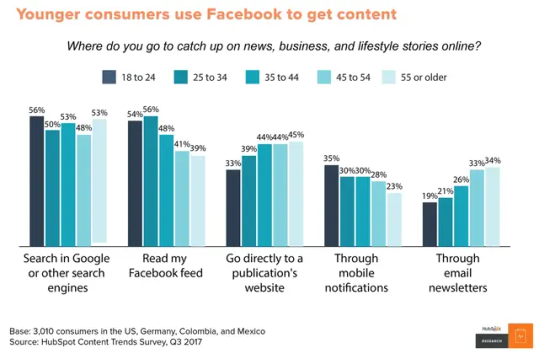
Social media plays a powerful role in growing your online presence and improving SEO. By encouraging content sharing, optimizing your social media profiles, and working with influencers, you can increase your brand’s visibility and drive more organic traffic to your website.
A well-planned social media strategy can lead to higher user engagement, better conversion rates, and overall business growth. When done right, social media doesn’t just support your SEO—it helps build long-term trust and connection with your audience.
Social Sharing
Encouraging social sharing is a key part of building a strong online presence. Adding share buttons to your blog posts and actively promoting your content on social media can help increase its reach and drive more organic traffic to your website.
A strong social media presence also helps improve brand awareness, keeps your audience engaged, and can even support better search rankings in the long run.
However, for some industries—like legal or professional services—organic social sharing may have less impact. In these cases, using targeted social media ads can be a more effective way to reach potential clients and grow online visibility.
Social Media Profiles
Optimizing your social media profiles with the right keywords and linking them to your website can increase your online visibility and help attract more traffic.
Staying active and consistent on social platforms builds trust and credibility with your audience. Over time, this can lead to higher engagement, stronger relationships, and better conversion rates for your business.
Adapting to SEO Algorithm Updates for Better Rankings
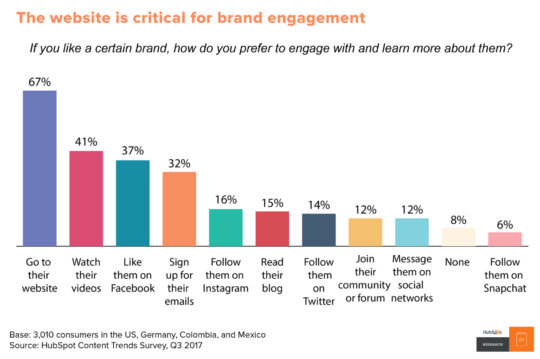
In the fast-changing world of SEO, it's important to stay informed about the latest trends and search engine algorithm updates to maintain strong rankings.
By regularly tracking changes in Google’s search results and keeping up with trusted SEO news sources, you can quickly adjust your strategy. This helps ensure your website stays competitive and visible in search engine results pages (SERPs).
Google Algorithm Updates
Google updates its search algorithm around 500–600 times each year, which makes it important to stay informed about these changes.
By keeping an eye on Google’s updates, you can better understand how they affect your website’s search performance and adjust your SEO strategy when needed.
Staying updated allows you to make smart changes that help you maintain or improve your rankings in search engine results.
Adjusting Your SEO Strategy to Algorithm Updates
Updating your SEO strategy to match changing search algorithms and user behavior is essential for staying at the top of search results and attracting steady organic traffic.
By regularly doing keyword research and staying informed about the latest SEO trends and algorithm updates, you can identify what needs improvement and adjust your strategy accordingly.
Consistently reviewing and improving your SEO tactics helps your website remain competitive, visible, and effective in search engine results.
Tracking and Measuring SEO Success
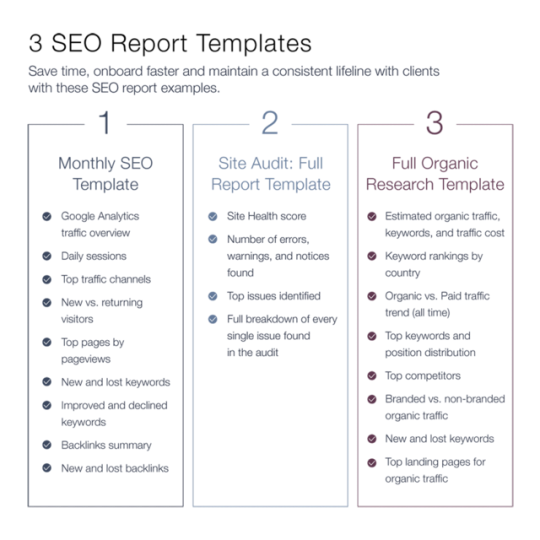
Tracking and evaluating your SEO performance is crucial to understand what’s working and where you can improve. Tools like Google Analytics help you monitor organic traffic, user behavior, ad performance, and conversion rates.
These insights allow you to adjust your strategy to maintain or improve your search rankings over time.
Having access to accurate data means you can make smarter, well-informed decisions that keep your SEO efforts effective and aligned with your goals.
Google GA4 Analytics
Google’s GA4 Analytics is a powerful tool for tracking and analyzing your SEO efforts. It helps you monitor important metrics like organic traffic, user engagement, and conversion rates, giving you a clear picture of how your SEO strategies are performing.
By regularly reviewing this data, you can identify what’s working, spot areas for improvement, and make smarter decisions to optimize your website for better search engine performance.
Final Thoughts on SEO Success
In conclusion, staying up to date with the latest SEO strategies and trends is essential for growing your website’s organic traffic and improving its search engine rankings.
To achieve lasting success online, focus on the following key areas:
Conducting strong keyword research
Optimizing your on-page SEO elements
Enhancing the user experience
Earning high-quality backlinks
Using social media to expand your reach
Staying informed about algorithm updates
Regularly tracking and analyzing your SEO performance
Together, these efforts will strengthen your online visibility, grow your audience, and help your website stay competitive in today’s digital world.
FAQ:
What is the most important part of SEO in 2025?
The most important part of SEO in 2025 is understanding user intent and aligning content to match that intent. Search engines are focusing more on delivering helpful, relevant content that directly answers what users are searching for. This includes using the right keywords, improving content quality, and ensuring a smooth user experience.
2. How does AI affect SEO strategies?
AI tools like ChatGPT can help with content creation, keyword research, and topic planning. However, it's important to humanize AI-generated content to make it engaging and original. Always review AI-written content for clarity, accuracy, and tone before publishing, and check it with originality tools.
3. What are cornerstone pages in SEO?
Cornerstone pages are in-depth, high-value content pieces that cover a broad topic thoroughly. These pages serve as the foundation of your website’s content structure and should be internally linked from related blog posts. They help improve site structure, authority, and SEO performance.
4. How do I find the best keywords for SEO?
Use tools like Google Keyword Planner, Ahrefs, or SEMrush to find keywords with high search volume and low competition. Focus on long-tail keywords that are more specific and match user search intent for better rankings and higher-quality traffic.
5. How often should I update my SEO strategy?
You should review and update your SEO strategy every 3–6 months or whenever there is a major algorithm update. Regular updates keep your site competitive, aligned with search engine changes, and responsive to shifts in user behavior.
6. What is on-page SEO and why is it important?
On-page SEO involves optimizing elements on your website—like title tags, meta descriptions, header tags, internal links, and content—to help search engines understand your page. It’s important because it directly affects how your pages rank and how users engage with your content.
7. How do backlinks help SEO?
Backlinks from reputable sites signal to search engines that your content is trustworthy and valuable. High-quality backlinks improve your domain authority, increase organic visibility, and help your pages rank higher in SERPs.
8. What is the role of user experience (UX) in SEO?
Search engines now consider UX signals like page speed, mobile-friendliness, easy navigation, and low bounce rates when ranking pages. A positive user experience keeps visitors on your site longer and encourages conversions, both of which boost SEO performance.
9. How do I optimize for voice search?
To optimize for voice search, use natural language in your content, target question-based keywords, and provide concise answers. Focus on conversational content that mimics how people speak, especially for featured snippets.
10. What are Core Web Vitals and why do they matter?
Core Web Vitals are a set of metrics (like loading speed, interactivity, and visual stability) that measure the user experience on your site. Google uses these as a ranking factor, so improving them helps your site perform better in search results.
#Google keyword planner#Keyword research#content optimization#Google search console#Short-tail keyword
1 note
·
View note